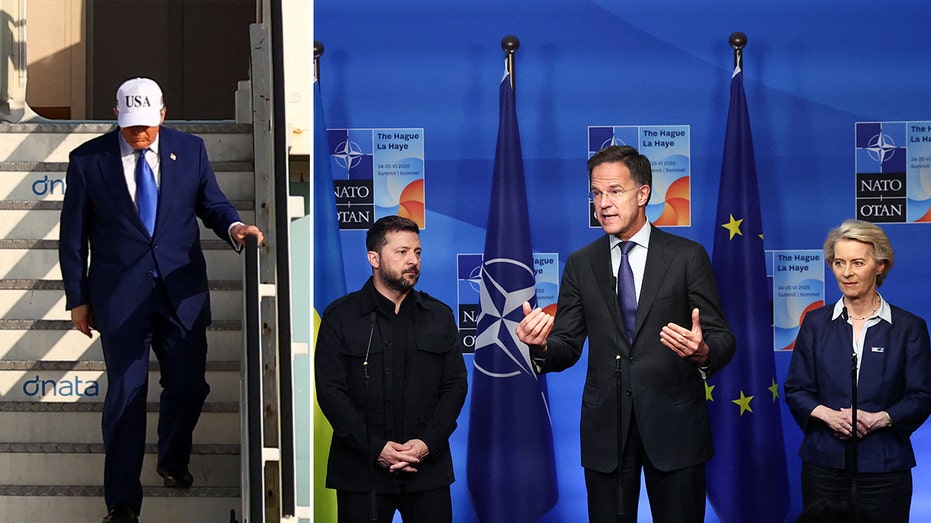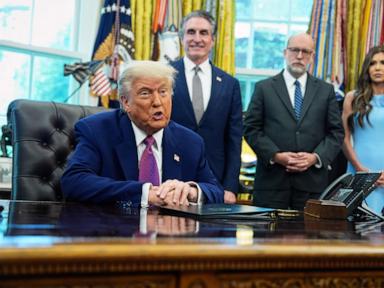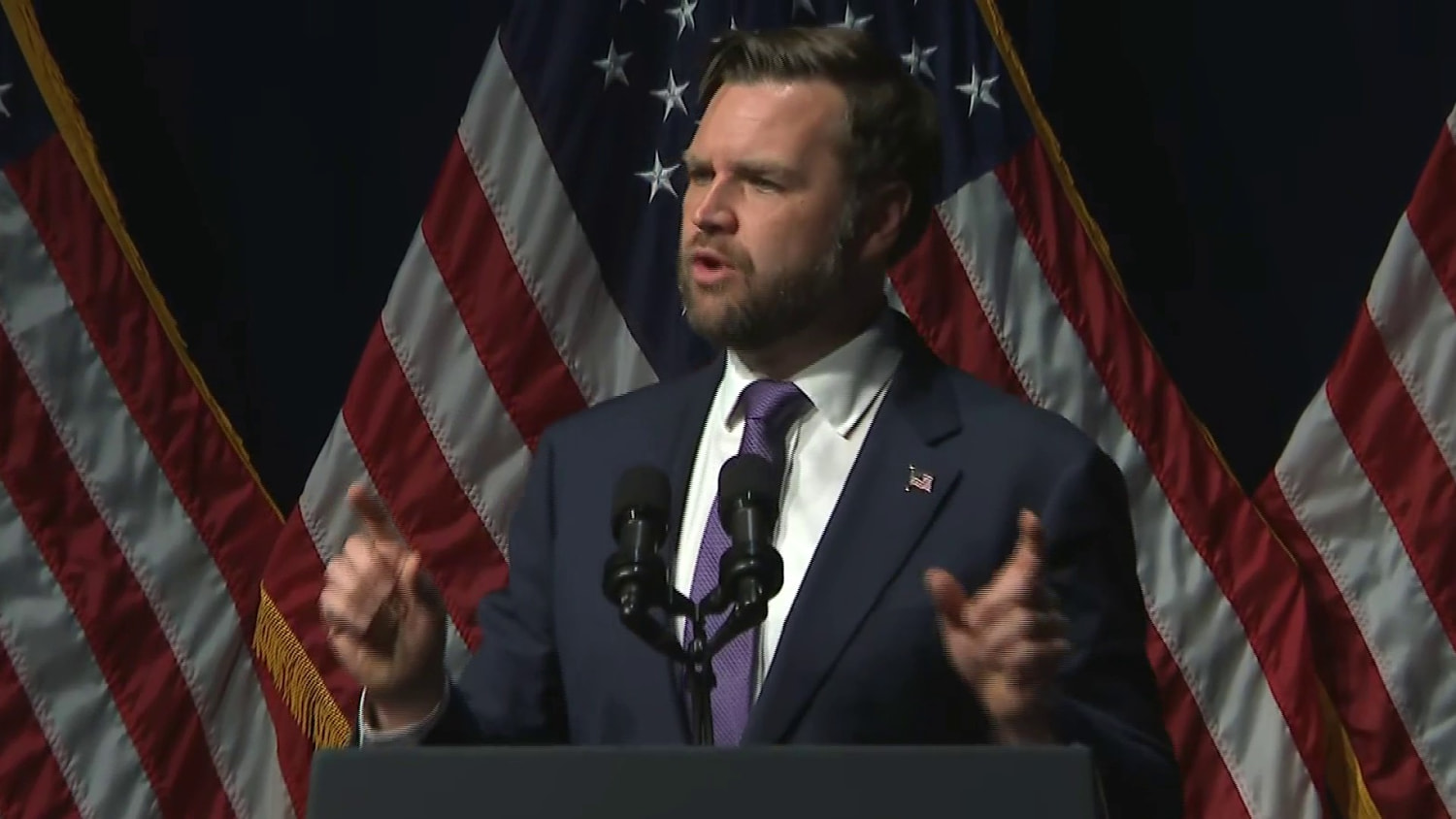In the days since Israel and Iran agreed to end what President Donald Trump has dubbed “the 12-Day War,” much remains unknown. But one thing is clear: As Israeli and U.S. munitions were slamming into numerous Iranian nuclear, military and economic targets, Tehran’s so-called friends and allies stood on the sidelines.
This might come as a surprise to many foreign policy analysts, officials and lawmakers in Washington, D.C. Indeed, over the last several years, a budding assumption has taken hold within the foreign policy establishment that the United States’ most significant competitors and enemies — China, Russia, Iran and North Korea — are not only teaming up to complicate U.S. foreign policy goals and undermine American power but to shift the global balance in an authoritarian direction. The word “axis” — as in “Axis of Upheaval,” “Axis of Autocracies” or “Axis of Aggressors” — has been thrown around as if it were confetti at a parade.
The events in Iran over the last several weeks suggest this concept is far too simplistic. In fact, it could also be dangerous — potentially leading the United States to make bad decisions that, ironically, could create the very axis the bipartisan foreign policy blob sometimes hyperventilates about. By lumping all four countries together into one unified bloc, Washington risks papering over the considerable differences that exist between them and could sap the motivation for the United States to exploit those differences.
There’s no disputing that Russia, China, Iran and North Korea have increased their cooperation as of late. Iran, for instance, has provided Russian President Vladimir Putin with significant military assistance for its war in Ukraine by sharing the designs of its Fateh drones as well as the technology required to produce them on their own. North Korea has gone to even greater lengths, sending Moscow ballistic missiles, massive quantities of ammunition and at least 10,000 North Korean troops to help the Russian army push Ukrainian forces out of Kursk. Putin has reportedly returned the favor by assisting North Korean leader Kim Jong-un with air defenses, the provision of a new air-to-air missile for the dilapidated North Korean air force and diplomatic support at the United Nations Security Council.
The relationship between China and Russia has risen to new heights too. While Chinese officials make it plainly clear they aren’t supporting Putin’s war in Ukraine with weapons shipments, Beijing has nevertheless given the Russian strongman an alternative market to sell his crude oil and natural gas at a time when Moscow is hemmed in by U.S. and European sanctions and largely cut off from Europe, once its biggest customer. China has purchased more than $184 billion worth of crude oil from the Russians since the war in Ukraine began. Beijing is also serving as Russia’s backstop for critical components needed for Russian weapons systems, helping the Kremlin circumvent Western export controls.
The term “axis,” however, suggests that all four powers have a unified view of what they want the global order to look like and have a grand plan to get there. It sounds mischievous and conspiratorial, and it’s most certainly inaccurate. What’s occurring is less a strong, cohesive grouping bounded by ideology and long-term considerations and more a collection of bilateral relationships whose interests sometimes converge — until they don’t.
Take Russia-North Korea ties. Yes, the two countries have strengthened relations considerably, culminating in a defense agreement ratified in November 2024 that technically mandates mutual military assistance to the other in the event of a national security crisis. But we should be under no illusions that Putin and Kim are leaning on each other out of kinship, loyalty or even ideological ambitions. The Russians, frankly, need all the outside aid they can get, whether in the form of men, materiel or munitions, and North Korea is one of the few states willing to provide it at a cost. Kim, in turn, is happy to grant some of Putin’s requests but only if the terms are advantageous to his own regime. The North Koreans aren’t so much bailing the Russians out as they are exploiting Russia’s war-time desperation for its own ends. In essence, Kim is squeezing Putin as much as he can, betting that North Korean armor will be compensated with increased food and energy from Moscow and Russian defense systems that will allow Pyongyang to modernize its antiquated military.
The same dynamic is at play between China and Russia. Some prominent U.S. foreign policy experts have described Russia-China ties as a kind of “quasi-alliance” or coalition designed to erode U.S. power and influence around the world and weaken — if not eventually destroy — the system of alliances the United States built since World War II. The general perception is that Beijing and Moscow are at the very least trying to rejigger the U.S.-led world order to its advantage and at most establish an entirely new one based on a spheres-of-influence model, whereby the United States is forced to vacate Europe and East Asia in deference to the big powers in the regions.
But Washington would be making a mistake if it minimized a key ingredient driving the Russia-China relationship: mutual convenience. Moscow and Beijing are willing to greet one another with open arms when there is a benefit to doing so but remain wary of placing all their chips in each other’s baskets. Despite Putin and Chinese President Xi Jinping’s pronouncements of a “no limits” friendship between their countries, there are plenty of limits built into the partnership. Suspicion, if not distrust, is embedded in segments of their respective national security agencies, so much so that Russian counterintelligence is trying to root out Chinese spying inside Russia. The Chinese are tough negotiators on energy contracts and continue to press Moscow for cheaper terms to the point where Russia’s Power of Siberia 2 natural gas pipeline, meant to serve the Chinese market, is stalled. At the end of the day, Russia isn’t going to sacrifice too much for China. The feeling is mutual on the Chinese side; Xi may be willing to purchase cheap Russian oil and gas when it suits him but he hasn’t shown an inclination to sacrifice Beijing’s relations with the West, particularly now when his negotiators are attempting to hammer out a new trade deal with the United States.
Iran’s relations with Russia, China and North Korea are no exception to this rule. If the Iranian Supreme Leader or the Islamic Revolutionary Guard Corps anticipated some degree of support from their Russian, Chinese and North Korean partners during the 12-day conflict with Israel, then they set themselves up for disappointment. It turns out that the strategic partnership agreement Tehran signed with Moscow in January was no match for Washington’s 30,000-pound Massive Ordnance Penetrators or the Israeli air force, which made a mockery of Iran’s air defense network. Iran is a valuable friend for Russia and China but not to the point of getting involved in a conflict both viewed as a secondary distraction. Both have mutually profitable relationships with the Gulf Arab states to maintain as well, and those states didn’t want to see Moscow or Beijing contributing to a longer war in its neighborhood.
The most Moscow was willing to offer Iran was supportive rhetoric. On June 21, the day the Trump administration ordered the U.S. strike on the Iranian nuclear program, Putin argued there was no evidence that Tehran was seeking to build a nuclear weapon. Two days later, Putin hosted Iranian Foreign Minister Abbas Araghchi, where he claimed the Russian government was “making efforts…to provide support to the Iranian people” and referred to the attacks on Iran as “absolutely unprovoked aggression” without a legitimate basis. Strong words, but nothing that can stop a U.S. B-2 bomber from flying in Iranian airspace unmolested. The Iranian foreign minister left Russia with nothing more than a pat on the back.
China was equally strong in its condemnation on Iran’s behalf. Beijing called the U.S. strike a violation of the U.N. Charter and used a U.N. Security Council meeting on June 24 to allege that Washington was manufacturing a crisis over Iran’s alleged nuclear weapons program as cover to justify military action. But much like the Russians, the Chinese didn’t offer Tehran a lick of concrete support. If anything, China was likely just rooting for an early end to hostilities. Given the fact that nearly half of Beijing’s oil comes from the Persian Gulf, the last thing China wanted was higher oil prices or a disruption to supplies.
The Trump administration will be spending the days and weeks ahead trying to get a full accounting of the damage assessment of its strikes, something that has already caused a bit of a scandal in Washington. Yet U.S. officials in agencies across the federal government focusing on longer-term grand strategy should take the 12-day conflict between Iran and Israel as a case study for how fickle international relations can be, even amongst a small group of strongmen who often talk a big game but are concerned first and foremost with their own power — partners be damned.
A failure to account for this basic dynamic creates a number of problems for U.S. foreign policy. First, elevating the “axis” framing will likely result in the United States spreading its resources too thin in an effort to thwart these sprawling adversaries when what Washington truly needs is a hard-nosed, honest assessment of which threats truly require U.S. attention and which should be left to its allies to manage. Second, the United States risks fueling a self-fulfilling prophecy, as punitive U.S. actions — sanctions, export controls and more military deployments in Europe, the Middle East and East Asia, to name a few — incentivize Russia, China, Iran and North Korea to consolidate their relations in an attempt to counter U.S. power.
Finally, the United States makes it harder on itself to explore a détente with any of these four states in the future if it is stuck in an “axis” mindset. While such an outcome may seem implausible today, the reality of international politics is ever changing, and new developments can often spark new opportunities between previously hostile states. Overly generalizing now can produce more aggravation later.
.png)















 English (US)
English (US)